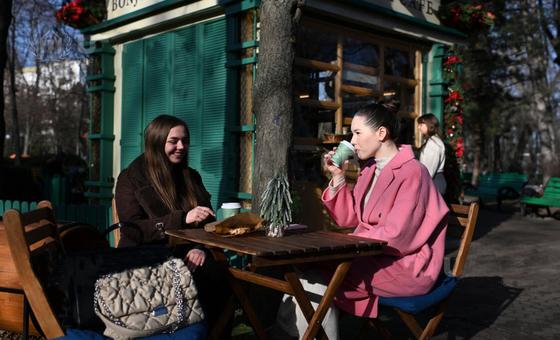Two refugees from Odessa are now living in Chisinau, Moldova and working for local NGOs to help fellow Ukrainians.
The UN High Commissioner for Refugees congratulated Moldova on Saturday, for its decision to initiate temporary protection for refugees fleeing Ukraine.
“The Moldovan people and Government have shown remarkable solidarity with refugees since the Russian invasion of Ukraine began nearly one year ago”, Filippo Grandi told the media during his visit to the country.
“This support was visible from the first days and weeks of the war, when tens of thousands of refugees – mainly women and children – fled Ukraine and continues to this day”.
“Opening homes”
Despite many pressing economic challenges and limited resources, “Moldovans opened their country and their homes”, the senior UN official continued.
During the past 11 months, almost 750,000 Ukrainian refugees entered and over 102,000 have remained – almost half of whom are children.
“The Government’s decision earlier this week to activate temporary protection is another concrete and tangible expression of continued and sustained solidarity with the Ukrainian people”, he stated.
The UN refugee chief explained that the move provides a more secure legal status for refugees and paves the way for a more sustainable planning and response.
“Temporary protection will help refugees access employment, become self-reliant, and will also allow them to contribute to their host communities until they can return home in safety and dignity”.
It also provides the framework for even more long-standing access to education and other basic services as well as stability during trauma and upheaval.
Stepped-up support needed
The UN refugee agency, UNHCR, is committed to supporting Moldova and deepening its cooperation on refugee inclusion, while simultaneously mobilizing support for host families and communities.
Since the beginning of the refugee influx, it has delivered to Moldova more than $100 million worth of assistance and support.
“We will continue to invest in strengthening social protection systems in Moldova for refugees and Moldovans alike”, assured Mr. Grandi.
“But it is imperative that the international community steps up to provide renewed support for the refugee response and for the communities generously hosting refugees in Moldova”.
This means urgent and enhanced development investments in the country, as well as significant international efforts to shore up and grow the State’s economy, including encouraging private sector investment that can provide sustainable opportunities for both Moldovans and refugees.

